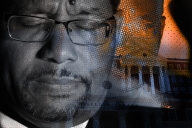You have /5 articles left.
Sign up for a free account or log in.
The popular press seems to attribute an apparent rise in academic cheating to the advent of remote learning in the COVID pandemic. And yet, research shows that cheating is not necessarily more prevalent in online classes than face-to-face classes. In a 2010 study, George Watson and James Soettile reported in the Online Journal of Distance Learning Administration:
The focus of this study was on whether students cheat more in on-line or live courses, and, somewhat surprisingly, the results showed higher rates of academic dishonesty in live courses. One possible explanation is that classroom social interaction in live classes plays some part in whether students decide to cheat, which would agree with the findings of Stuber-McEwen et al (2009).
The anecdotal reports of more cheating in online courses may be more a function of closer online scrutiny and the use of proctoring tools. Simply stated, instructors may be catching more online cheating because they are looking harder for cheating online than they did on campus.
As one considers this topic more deeply, it becomes apparent that many courses, and embedded assessments, have not changed much for years, even decades. In prior centuries, we relied on memorization to provide prompt recall of facts and formulas that we used in our work -- many of which are now available online in just an instant. Built-in assumptions upon how assessments or relevant learning are constructed may be flawed in light of the current status of technology in our society. We now live in an environment in which facts, figures and rich data are instantly available at our fingertips; the internet has become our “extended memory.” One must ask, are our testing policies and practices in higher education keeping up with these advances?
In 0.67 seconds, I can bring up the atomic weight of indium (114.818 u). The order and suborder of mosquitoes appears in 0.67 seconds (order Diptera, suborder Nematocera). T-score and Z-score formulas come up in the same two-thirds of a second. My point is that our “extended memory” of the internet holds instant recall of billions of facts. It would seem that with that extended memory, our students are not well served by testing for facts that can be uncovered with the touch of a screen. If these are what we include on tests, I believe we, the faculty, are failing to create effective assessments of meaningful learning.
Linda Rowan and Fiona Murray of Massey University make the case for updating the way we assess students to conform to the 21st-century digital society that embraces technology and collaboration, suggesting we need to change the definitions of cheating:
In the networked world, the line between what is original and what is adapted is more blurred every day. It isn’t always possible to decide what is original and unique in order to give it individual credit. If exams are designed to assess higher-order cognitive development -- demonstrating individual ability to synthesize and apply knowledge -- surely collaboration can be the vehicle for what educationalist John Biggs calls deeper learning. Can’t examination practices change to capture this?
University exams need to check for individual (or collective) application, evaluation and synthesis of knowledge, not just rote learning and recall of study notes.
We should be more about teaching methods, processes, reflection and creative/critical thinking than recalling facts and figures that are available to us in an instant online. Should we, then, focus our efforts on engaged teaching and assessing through unique -- even personalized - problem solving, collaboration building, leadership and communication? This seems ripe for authentic assessment -- a topic I covered earlier this year.
Our assessments should be not merely a check of facts and figures. Rather, they should become learning experiences of their own. Ideally, they should be personalized so that each student’s assessment is specifically relevant to their individual interests and career goals. Each student’s examination should differ from the others -- not in principle, but rather in detail and application. Yes, this is more work for the instructor! It could mean 20 different examination questions for 20 different students. Yet it is worthy work to assess the learning, ability and skill of the student as it addresses their specific individual learning goals.
As we approach the digital transformation of higher education, we will use data-driven tools to enable customization of content and assessment. Personalized learning -- including assessment -- will become our method and mode of engaging students. The ideal will be to facilitate personalized learning, rather than the cookie-cutter approaches of the past.
Are you advocating for individualized attention and engagement of students in their learning? Who is leading the move to personalized learning at your institution? What can we do collectively to help advance higher education toward making the leap of digital transformation?





